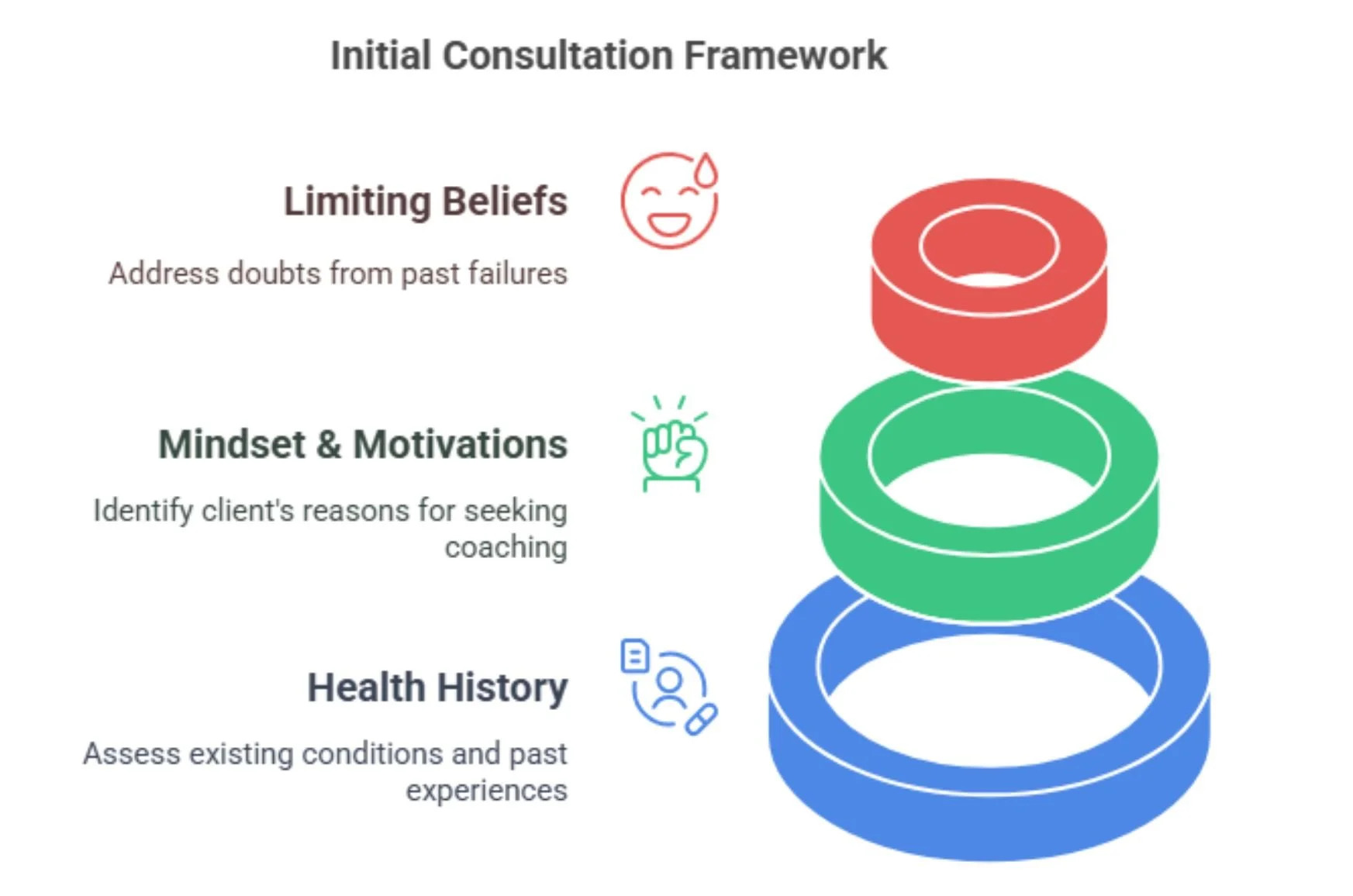How to Set Realistic Expectations for Your Health Coaching Clients
In the wellbeing coaching industry, setting practical desires is fundamental for accomplishing long-term victory and keeping up client fulfillment. As an industry master wellbeing coach, it's pivotal to direct your clients through their wellbeing ventures with clear, feasible objectives. This not as it were cultivates believe and inspiration but too guarantees economical advance. In this comprehensive web journal, we'll dive into methodologies for setting practical desires, understanding client needs, and cultivating a collaborative coaching environment.
As a health coach, your role is to guide clients toward achievable milestones while maintaining their motivation. With advancements in health tracking, AI-driven coaching tools, and behavioral research in 2025, setting and managing expectations has never been more strategic. This guide will provide you with actionable steps to ensure your clients stay committed, see real results, and build lifelong habits.
Understanding Your Client’s Mindset and Goals
Why Clear Expectations Matter
Clients often approach health coaching with a mix of excitement and unrealistic expectations. They may expect rapid weight loss, immediate improvements in energy, or a dramatic transformation in a short time. It is important to set the tone early by reinforcing that health is a long-term commitment, not a quick fix.
The Role of the Initial Consultation
The first session with a client is an opportunity to assess their current health status, understand their motivations, and uncover potential challenges. Key areas to explore include:
Health history: Any existing conditions, past diet attempts, and previous fitness experiences.
Mindset and motivations: Identifying their "why" for seeking coaching helps maintain long-term commitment.
Limiting beliefs: Many clients believe they cannot lose weight, build muscle, or develop new habits due to past failures. Addressing these doubts early is essential.
How Expectations Influence Motivation
Recent research shows that dopamine levels fluctuate based on expectation fulfillment. If a client expects rapid weight loss and does not see immediate results, they may lose motivation. Managing expectations correctly prevents these motivation crashes and keeps clients engaged in the process.
Why SMART Goals Are Still Relevant in 2025
SMART (Specific, Measurable, Achievable, Relevant, Time-bound) goals continue to be the foundation of effective coaching, but advancements in personalized health data, AI-driven feedback, and wearable technology allow for more precision.
Specific Goals vs. Vague Goals
Vague goals such as "I want to get in shape" set clients up for failure. Instead, encourage specificity:
Instead of "I want to lose weight," set a goal to "Lose 10 pounds over three months through strength training and balanced nutrition."
Instead of "I want to exercise more," aim for "Strength train three times per week and walk 10,000 steps daily."
Measuring Progress Beyond the Scale
Many clients focus on weight as the primary indicator of success, but body composition, strength levels, energy, and sleep quality provide a clearer picture of health. In 2025, AI-driven coaching platforms allow clients to track:
Muscle mass and fat percentage through body scanners.
Sleep efficiency using wearable technology.
Blood sugar and metabolic responses through continuous glucose monitors.
Setting Achievable Goals
Ambitious goals can be motivating, but if they are not realistic, they become discouraging. If a client wants to run a marathon but has never run before, a more achievable short-term goal might be to complete a 5K race within eight weeks.
Ensuring Relevance to Lifestyle
A goal should align with a client's daily life. If they have a demanding job and limited time, a two-hour gym routine is unrealistic. Instead, work within their constraints by designing short, effective workouts and nutrition strategies that fit their schedule.
Time-Bound Goals for Motivation
Setting deadlines creates urgency, but they should be flexible. If a client does not reach a goal by the set time, instead of labeling it as failure, adjust the plan based on their progress.
Educating Clients on the Realities of Health Transformations
Why Quick Fixes Are Still a Myth in 2025
Despite access to more health data than ever before, many clients still fall for unrealistic promises of rapid fat loss or instant muscle gain. As a coach, it is essential to educate them on the reality that:
Extreme calorie restriction slows metabolism and leads to rebound weight gain.
Crash diets increase the risk of hormonal imbalances.
Rapid muscle gain is rare and requires consistent training and nutrition.
Reframing Health as a Process, Not a Destination
Instead of fixating on the end result, shift the focus to the daily actions that lead to success. This builds habits that last beyond coaching sessions. Examples include:
Eating whole, nutrient-dense foods most of the time rather than following a rigid diet.
Increasing daily movement instead of relying only on structured workouts.
Prioritizing sleep quality for recovery and overall well-being.
Building a Strong Client-Coach Relationship
Empowering Clients Through Collaboration
Clients are more likely to stay committed when they feel a sense of ownership over their progress. Instead of dictating what they should do, involve them in decision-making.
For example, instead of saying, "You need to eat more protein," ask, "What protein sources do you enjoy? How can we incorporate them into your meals?" This coaching-first approach encourages long-term adherence.
Frequent Check-Ins and Adaptability
Incorporating weekly or bi-weekly check-ins allows for adjustments based on real progress. Using technology like wearable health monitors and AI-driven habit trackers can provide real-time insights and make data-driven adjustments easier.
Overcoming Challenges and Preventing Burnout
Common Challenges and Solutions
ChallengeSolutionLack of timeCreate efficient 20-30 minute workouts and quick meal prep strategies.Motivation lossShift focus from external results to daily habits and wins.PlateausIntroduce progressive overload in training and cycle nutrition strategies.Stress and emotional eatingDevelop mindfulness techniques and alternative coping mechanisms.
Building Resilience for Long-Term Success
Setbacks are inevitable. Instead of seeing them as failures, teach clients to view them as learning experiences. Building resilience ensures they stay consistent even when progress slows.
Six Lesser-Known Facts About Health Coaching in 2025
AI-driven coaching programs now analyze biometric data in real-time, providing highly personalized recommendations.
Microbiome health plays a larger role in weight loss and metabolism than previously understood.
Mental health and stress management techniques are now integrated into most successful health coaching programs.
Meal timing and circadian rhythms have been proven to impact fat loss and muscle retention.
Gut-brain connection research shows that mental clarity and mood improve with dietary changes.
Long-term habit formation relies more on behavioral psychology than willpower alone.
Conclusion
Setting realistic expectations is the foundation of a successful health coaching journey. Clients often begin with ambitious goals, but without proper guidance, they may become discouraged when progress slows. As a coach, your role is to educate, empower, and adapt strategies based on their individual needs.
By using science-backed goal-setting methods, leveraging the latest health technology, and reinforcing sustainable habits, you can help clients stay committed for the long term. Encouraging small, consistent actions over drastic changes ensures lasting results and prevents burnout.
Ultimately, health coaching in 2025 is not just about weight loss or fitness—it’s about helping clients build a healthier, more resilient lifestyle that fits their unique needs. With clear expectations, continuous support, and a focus on progress rather than perfection, you can guide your clients toward lifelong success in their health and wellness journey.
ANHCO is a leading authority in the health coaching industry, providing cutting-edge education and resources to help professionals elevate their coaching skills and impact lives. The ANHCO Life Coach Certification Program equips aspiring coaches with science-backed methodologies, behavioral psychology insights, and practical tools to guide clients toward sustainable health and wellness transformations.
FAQS
-
Clear expectations help clients stay motivated, avoid frustration, and achieve sustainable results. It also builds trust and ensures a smooth coaching relationship.
-
Use the SMART goal framework (Specific, Measurable, Achievable, Relevant, Time-bound) to break down their larger aspirations into manageable steps.
-
Educate them on the importance of gradual, long-term progress over quick fixes. Use evidence-based examples to show why sustainable change takes time.
-
Track and celebrate small wins, use progress journals or check-ins, and focus on non-scale victories like increased energy, better sleep, or improved mood.
-
Reframe setbacks as learning opportunities, adjust their goals if needed, and remind them of their initial progress. Reinforce consistency over perfection.
-
Be honest about what’s realistic based on their lifestyle, health status, and commitment level. Help them integrate small, sustainable changes rather than drastic overhauls.
-
Yes! Clarify that you are a coach, not a doctor or therapist, and refer clients to medical professionals when necessary. Define session structure, communication limits, and responsibilities upfront.
-
Teach them habit-building strategies, encourage self-accountability, and equip them with the tools to continue progress beyond the coaching program.




